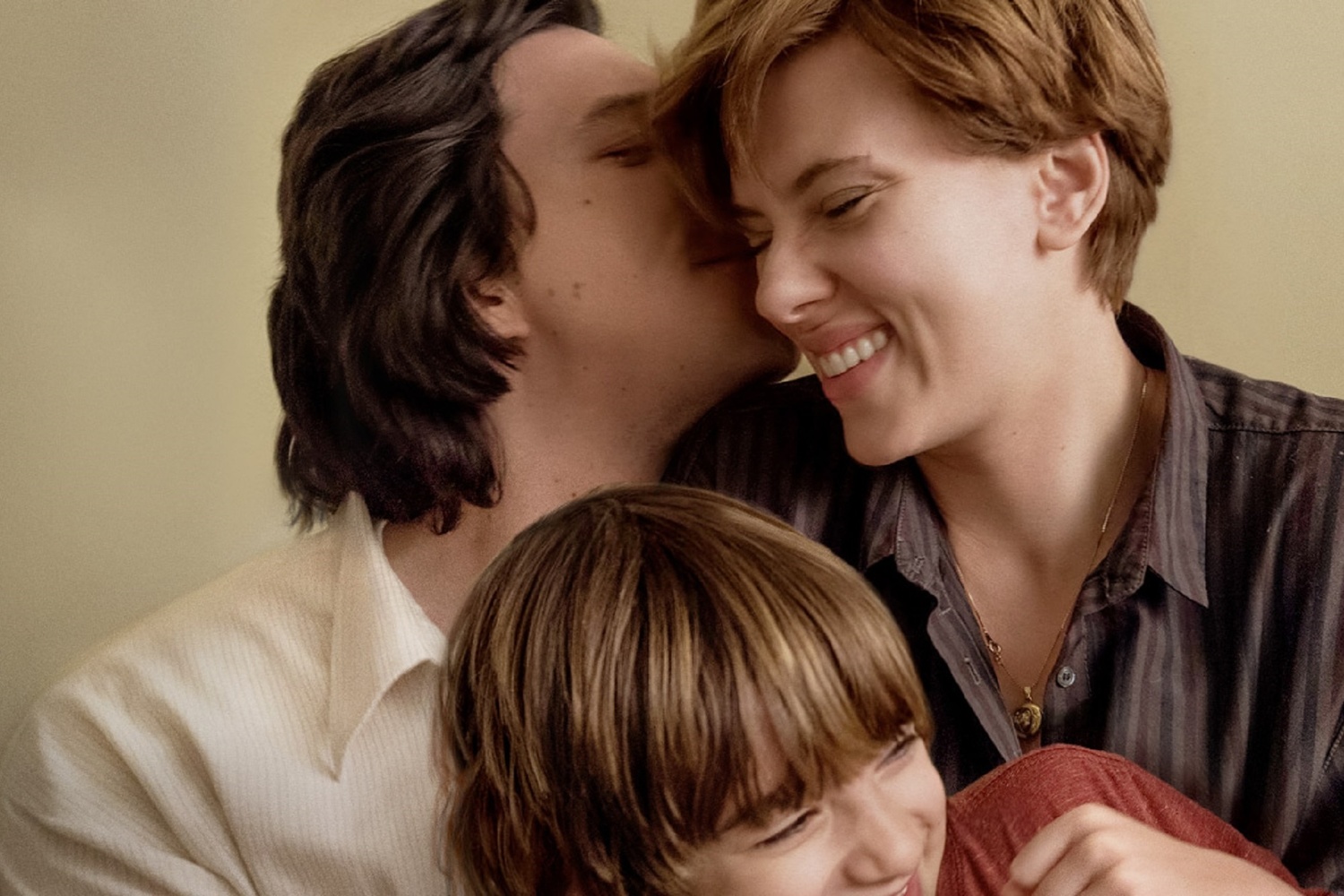
Adam Driver and Scarlet Johansson in “Marriage Story.” (Courtesy of Netflix)
Noah Baumbach’s latest movie, “Marriage Story,” feels vaguely familiar for the well-seasoned director. With films like “The Squid and the Whale,” “The Meyerowitz Stories” and “While We’re Young,” “Marriage Story” is about an artistic, coastal, erudite family dealing with some sort of emotional difficulty: this time it’s divorce.
Baumbach’s films tend to be about an undeniably personal subject matter. After graduating from Vassar College with a BA in english, he made a movie about floundering college graduates. When he aged into his forties, he made a movie about getting older. Now that he’s gone through a divorce, we’ve got “Marriage Story.” In a recent interview with The New York Times, he mentioned that he thinks there is a distinction between “autobiographical” and “personal,” the former being a sort of direct recreation of life, and the latter being a way of making art that incorporates some autobiographical details, but is not “one-to-one.”
This approach to movies—making them personal but not completely autobiographical—may be what makes Baumbach’s work feel so genuine and emotional. “Marriage Story” follows Nicole (Scarlett Johanssen) and Charlie (Adam Driver) as they navigate a bicoastal separation and eventual divorce. Charlie is an acclaimed avant-garde theater director whose play is about to open on Broadway in New York, and Nicole is an actress (formerly in Charlie’s plays) who lands a leading role on a pilot in LA and decides to move to pursue a new, more fulfilling life. Their divorce is precipitated by a multitude of different disagreements and resentments; Charlie is domineering both creatively and personally, Nicole has a hard time feeling certain about what it is she wants.
The plot of the story does a great job of validating both sides, as the viewer finds themself caught between signs of a messy divorce, siding with Charlie, then Nicole, then Charlie, then Nicole. Even though there seems to be a slight slant in Charlie’s direction, due to him getting more solo screen time and Baumbach’s own inevitable perspective in writing the film, the viewer can easily choose for themselves when considering the plot as a whole.
It is hard to find a weak point throughout all aspects of the film: the script is incisive, melancholic and funny all at once. The characters in a Baumbach movie often seem to be talking only to themselves, but here, Charlie and Nicole’s lives are so intertwined that they’re forced to untangle themselves, and the results are not pretty. “Marriage Story” isn’t as funny as some other Baumbach films, but there are recurring jokes that lighten the mood every once in a while—like his incessant teasing of Los Angeles (“The space!”). The performances feel like they’ve been lived in, and not just Driver’s and Johanssen’s, but Laura Dern, Alan Alda and Ray Liotta’s portrayals of divorce lawyers each work perfectly in their own right.
The cinematography isn’t particularly experimental or interesting, but it does what it has to in order to serve the movie’s emotional intent. Scenes like the knock-down-drag-out shouting match (which ends in Charlie telling Nicole he wishes she was dead and then proceeding to weep on the floor) are filmed and blocked in a way that allows the viewer to feel like they’re experiencing these awful, soul-crushingly sad moments along with the characters.
Baumbach uses repetition to his advantage throughout the film, juxtaposing pre-separation joyfulness with lonesome post-divorce isolation. The way that previously seen events are brought up in the courtroom scene shows how vicious and hurtful a divorce can be; these two people don’t want to be together anymore, but in order to separate, it’s as if they must learn to hate each other. There’s a sort of realism here that might be traumatic for people who have experienced something similar, but this speaks to the power that realistic art can have.
There are two musical numbers from Stephen Sondheim musicals at the end of the film: Johanssen sings “You Could Drive a Person Crazy” and Driver sings “Being Alive.” Lyrics include lines like “Somebody pull me up short / And put me through hell / And give me support / For being alive” and serve as emotional centerpieces not just for “Marriage Story” but for much of Baumbach’s work in general. His films are about feelings that are nearly ubiquitous in contemporary America. They’re about people being alive, struggling to figure out how, why and if they love each other.
“Marriage Story” is available for streaming on Netflix as well as in select theaters.
Contact CU Independent Staff Writer Cameron Markuson at cameron.markuson@colorado.edu.
